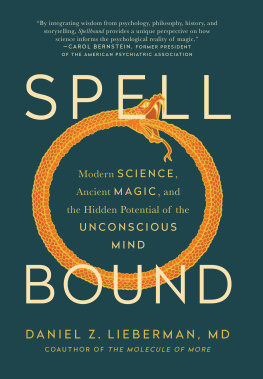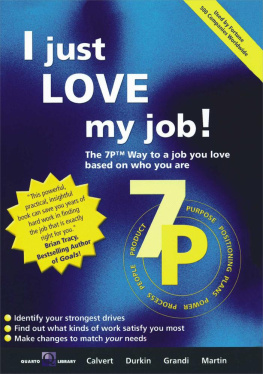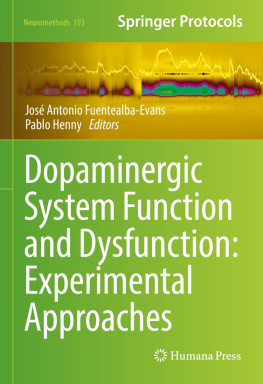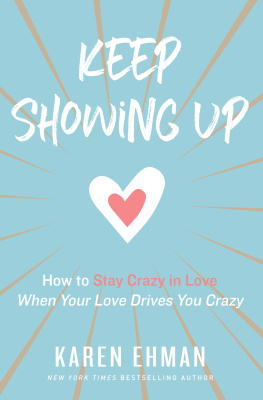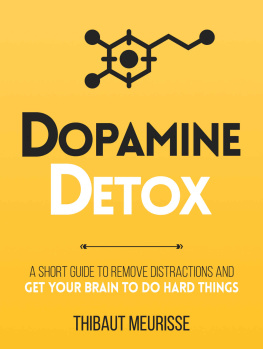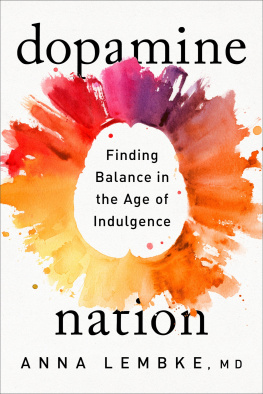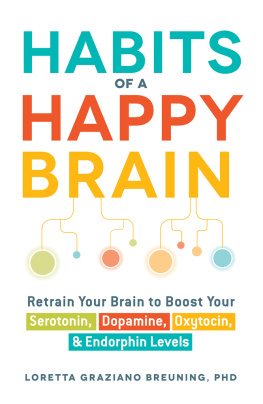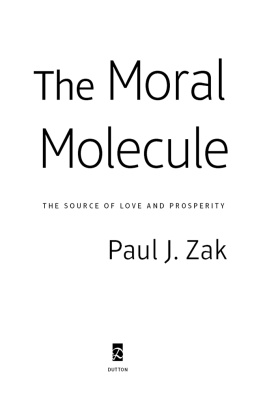PRAISE FOR THE MOLECULE OF MORE
Daniel Lieberman and Michael Long have pulled off an amazing feat. They have made a biography of a neurotransmitter a riveting read. Once you understand the power and peril of dopamine, youll better understand the human condition itself.
Daniel H. Pink, author of Drive and When
Meet a molecule whose fingerprint rests upon every aspect of human naturefrom desire and drugs to politics and progress. Lieberman and Long tell the epic saga of dopamine as a page-turner that you simply cant put down.
David Eagleman, PhD, neuroscientist at Stanford and New York Times bestselling author
Ive worked as an artist for forty years, and the question Why am I like this? has been a puzzle, a mystery, a plea, and an occasional cry to the heavens. Lieberman and Long have created a road map for all those wrestling between insatiable longing and the here and now.
Thomas F. Wilson, actor and comedian
Why do we crave what we dont have rather than feel good about what we doand why do fools fall in love? Haunting questions of human biology are answered by The Molecule of More, a must-read about the human condition.
Gregg Easterbrook, author of Its Better Than It Looks
As a guy who creates musical stuff for a living and reads science books for kicks, I was doubly hooked by The Molecule of More. Lieberman and Long lay out the astoundingly wide-ranging effects of dopamine with nimble metaphors and fat-free sentences. And the research linking creativity and madness, with dopamine as the hidden culpritlets just say it hit home. Reading each chapter, I felt myself fitting a key smoothly into a locked door, opening onto a fresh-yet-familiar room.
Robbie Fulks, Grammy-nominated recording artist
Jim Watson, who deciphered the genetic code, famously said, There are only molecules; the rest is sociology, adding fuel to C. P. Snows complaint that Science and the humanities are two fundamentally different cultures which will never meet. The authors argue provocatively, yet convincingly, that the molecule that allows us to bridge the chasm between them is dopamine. Though written for ordinary people, the narrative is sprinkled throughout with dazzling new insights that will appeal equally to specialists.
V.S. Ramachandran, PhD, professor at the University of California, San Diego, and at Salk Institute and author of The Emerging Mind


Copyright 2018 by Daniel Z. Lieberman, MD, and Michael E. Long
All rights reserved. No part of this book may be used or reproduced in any manner whatsoever without written permission except in the case of brief quotations embodied in critical articles or reviews.
Excerpt of lyrics from Desolation Row () Copyright 1965 by Warner Bros. Inc.; renewed 1993 by Special Rider Music. All rights reserved. International copyright secured. Reprinted by permission.
(page 41) by Sasangi Umesha
)

BenBella Books, Inc.
10440 N. Central Expressway, Suite 800
Dallas, TX 75231
www.benbellabooks.com
Send feedback to
First E-Book Edition: August 2018
Library of Congress Cataloging-in-Publication Data
Names: Lieberman, Daniel Z., 1964- author. | Long, Michael E., 1963- author.
Title: The molecule of more : how a single chemical in your brain drives love, sex, and creativity-and will determine the fate of the human race / Daniel Z. Lieberman, MD and Michael E. Long.
Description: Dallas, TX : BenBella Books, Inc., [2018] | Includes bibliographical references and index.
Identifiers: LCCN 2018010836 (print) | LCCN 2018021644 (ebook) | ISBN 9781946885296 (electronic) | ISBN 9781946885111 (trade cloth : alk. paper)
Subjects: LCSH: DopaminePhysiological effect. | DopamineReceptors. | Neurotransmitters.
Classification: LCC QP563.D66 (ebook) | LCC QP563.D66 L54 2018 (print) | DDC 612.8/042dc23
LC record available at https://lccn.loc.gov/2018010836
Editing by Vince Hyman
Copyediting by James Fraleigh
Proofreading by Lisa Story and Greg Teague
Indexing by Debra Bowman
Text design and composition by Aaron Edmiston
Cover design by Pete Garceau
Jacket design by Sarah Avinger
Printed by Lake Book Manufacturing
Distributed to the trade by Two Rivers Distribution, an Ingram brand www.tworiversdistribution.com
Special discounts for bulk sales (minimum of 25 copies) are available. Please contact Aida Herrera at .
For Sam and Zach,
who open my eyes to seeing the world in new ways.
DZL
For Dad,
who would have told everyone even if they didnt want to hear it; and
For Kent,
who left just when things were getting interesting.
ML

 CONTENTS
CONTENTS



We are most grateful to Dr. Fred H. Previc for his book The Dopaminergic Mind in Human Evolution and History. The book introduced us to the fundamental distinction between the future focus of dopamine and the present focus of a group of other neurotransmitters. Its written primarily for scientists, but if you are interested in a deeper look at the neurobiology that informs this book, we highly recommend it.
Thanks to our agents, Andrea Somberg and Wendy Levinson of the Harvey Klinger Agency, who immediately understood what we were doing and gave us the validation we had hoped to find. Thanks too to our publisher, Glenn Yeffeth at BenBella, whose enthusiasm and expertise put us further at ease. Thanks also to the BenBella team, especially Leah Wilson, Adrienne Lang, Jennifer Canzoneri, Alexa Stevenson, Sarah Avinger, Heather Butterfield, and everyone else there who labored over our work, even if we never met. Plus: special thanks to copy editor extraordinaire James M. Fraleigh. He could improve even this sentence, and probably in his sleep.
Dan wishes to thank Dr. Frederick Goodwin for his many years of mentorship. Dr. Goodwin is one of the worlds foremost experts on bipolar disorder. He drew my attention to the relationship between immigration and bipolar genes, and also suggested that I look to Tocquevilles classic book Democracy in America to better understand the character of the United States in the nineteenth century. Thanks to the George Washington University Medical Faculty Associates for the opportunity to practice psychiatry in a vibrant academic environment and the privilege of treating people living with mental illness. My patients willingness to share with me their suffering, triumphs, hopes, and fears is a constant source of inspiration for which Im grateful. Thanks also to the medical students and trainees who ask annoyingly difficult questions, forcing me to constantly rethink my understanding of how the brain works.
Next page

